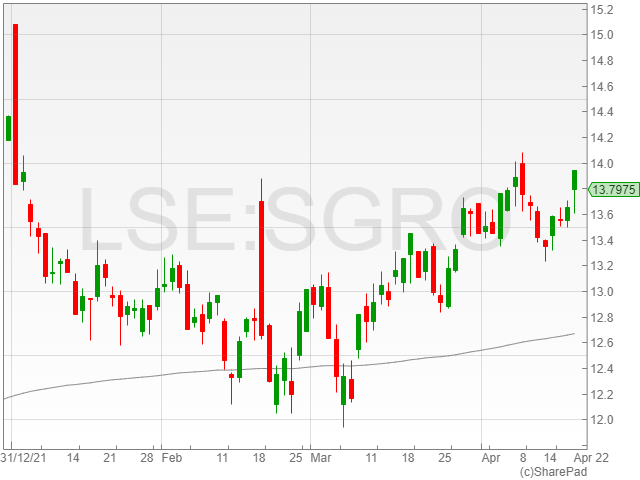Segro shares were up 0.5% to 1,373.5p in early morning trading on Thursday, following a £7 million boost over Q1 2022 in total headline rent to £25 million from £18 million in Q1 2021.
The properties firm reported a fall in vacancy rate to 3.3% from 4.4%, and a rise in uplift on rent reviews and renewals to 23% from 12%.
However the company’s customer retention rate dipped slightly to 79% from 82% over the same term last year.
Segro commented that its capital investment continued to focus on asset development and acquisition with future growth potential, alongside its aim to source assets with short-term income and development opportunities to extend the firm’s development pipeline.

“Our business has had a strong start to the year with continued demand from a broad range of customers enabling us to capture further rental growth through rent reviews and the re-letting of space,” said Segro CEO David Sleath.
“We have significantly increased our largely pre-let development pipeline and have secured future opportunities for growth in some of our most supply-constrained urban markets through the acquisition of land, as well as income-producing assets with medium-term redevelopment potential.”
The group confirmed that it expected its development capex for 2022 to reach £700 million, including infrastructure.
The company reported a development capex rise to £151 million in Q1 2022 from £143 million in the same period last year, and an acquisitions cost of £175 million against £37 million.
Segro further noted 1.4 million square metres of space which is currently under development, representing £108 million in new rent prospects.
The group also mentioned a net debt of £4.4 billion against £4.2 billion in Q1 2021, with its issuance of €1.15 billion in Green bonds over Q1 2022 at a blended coupon of 1.5% helping to strengthen the firm’s balance sheet and keep to a low average cost of debt.
The firm warned that the conflict in Ukraine had added to its supply chain complications, with inflationary pressures having a knock-on effect on the company’s development programme.
“There have been no direct effects of the invasion on our business, however it has added to construction supply chain and inflationary pressures and we are working closely with our construction partners so as to minimise the impact on our development programme,” said Sleath.
“At the same time, we expect these pressures will further tighten the supply-demand imbalance for industrial assets and place further upward pressure on rents across our portfolio.”
“The industrial sector continues to benefit from highly supportive and long-term structural tailwinds, which are leading to sustained strong occupier and investor demand, despite the challenges that the world is facing. We are alert to ongoing geopolitical and macro-economic risks but remain confident in the outlook for our business in 2022 and beyond.”
